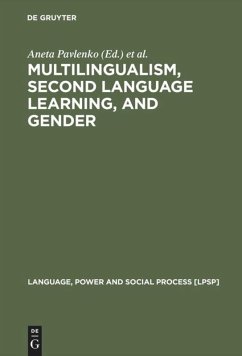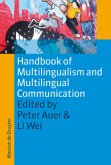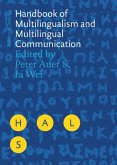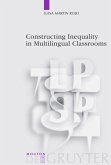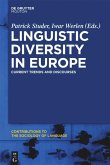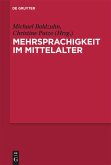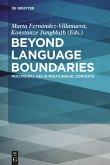This volume presents a comprehensive introduction to the study of second language learning, multilingualism and gender. An impressive array of papers situated within a feminist poststructuralist framework demonstrates how this framework allows for a deeper understanding of second language learning, a number of language contact phenomena, intercultural communication, and critical language pedagogy. The volume has wide appeal to students and scholars in the fields of language and gender, sociolinguistics, SLA, anthropology, and language education.
Hinweis: Dieser Artikel kann nur an eine deutsche Lieferadresse ausgeliefert werden.
Hinweis: Dieser Artikel kann nur an eine deutsche Lieferadresse ausgeliefert werden.
"To scholars of language and gender, it offers second language learners as a rich source for inquiry. In its attention to these issues, this volume makes a valuable contribution to linguistics anthropology, education, and linguistics."Begona Echeverria in: Language in Society 1/2004 "This book ist a highly readable and informative collection of articles exploring the interaction of multilingualism, second language learning, and gender in a variety of contexts."Lauren Ross-Feldmann in: Language and Education 5/2003 "The editors of Multilingualism, Second Language Learning and Gender have made substantial contribution to the still-underaddressed area of gender and L2 learning. [...] These 11 chapters are of a consistently high quality. Each chapter focuses on an instringuing and original topic, grounds the topic theoretically, displays a thourough knowledge of the relevant literature, and describes the research project cogently and in satisfying detail. Furthermore, the chapters are well written and accessible, though there is an occasional somewhat jarring transition between chapters, as is often the case in edited collections. Overall, however, the editors of this volume are to be commended for producing a well-planned, well-mapped, well-executed book that takes the study of gender and L2 learning a huge step forward."Stephanie Vandrick in: Tesol Quarterly 2004
"To scholars of language and gender, it offers second language learners as a rich source for inquiry. In its attention to these issues, this volume makes a valuable contribution to linguistics anthropology, education, and linguistics."
Begona Echeverria in: Language in Society 1/2004
"This book ist a highly readable and informative collection of articles exploring the interaction of multilingualism, second language learning, and gender in a variety of contexts."
Lauren Ross-Feldmann in: Language and Education 5/2003
"The editors of Multilingualism, Second Language Learning and Gender have made substantial contribution to the still-underaddressed area of gender and L2 learning. [...] These 11 chapters are of a consistently high quality. Each chapter focuses on an instringuing and original topic, grounds the topic theoretically, displays a thourough knowledge of the relevant literature, and describes the research project cogently and in satisfying detail. Furthermore, the chapters are well written and accessible, though there is an occasional somewhat jarring transition between chapters, as is often the case in edited collections. Overall, however, the editors of this volume are to be commended for producing a well-planned, well-mapped, well-executed book that takes the study of gender and L2 learning a huge step forward."
Stephanie Vandrick in: Tesol Quarterly 2004
"To scholars of language and gender, it offers second language learners as a rich source for inquiry. In its attention to these issues, this volume makes a valuable contribution to linguistics anthropology, education, and linguistics."
Begona Echeverria in: Language in Society 1/2004
"This book ist a highly readable and informative collection of articles exploring the interaction of multilingualism, second language learning, and gender in a variety of contexts."
Lauren Ross-Feldmann in: Language and Education 5/2003
"The editors of Multilingualism, Second Language Learning and Gender have made substantial contribution to the still-underaddressed area of gender and L2 learning. [...] These 11 chapters are of a consistently high quality. Each chapter focuses on an instringuing and original topic, grounds the topic theoretically, displays a thourough knowledge of the relevant literature, and describes the research project cogently and in satisfying detail. Furthermore, the chapters are well written and accessible, though there is an occasional somewhat jarring transition between chapters, as is often the case in edited collections. Overall, however, the editors of this volume are to be commended for producing a well-planned, well-mapped, well-executed book that takes the study of gender and L2 learning a huge step forward."
Stephanie Vandrick in: Tesol Quarterly 2004

